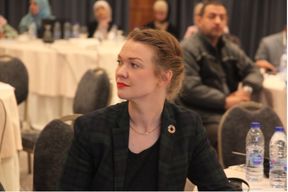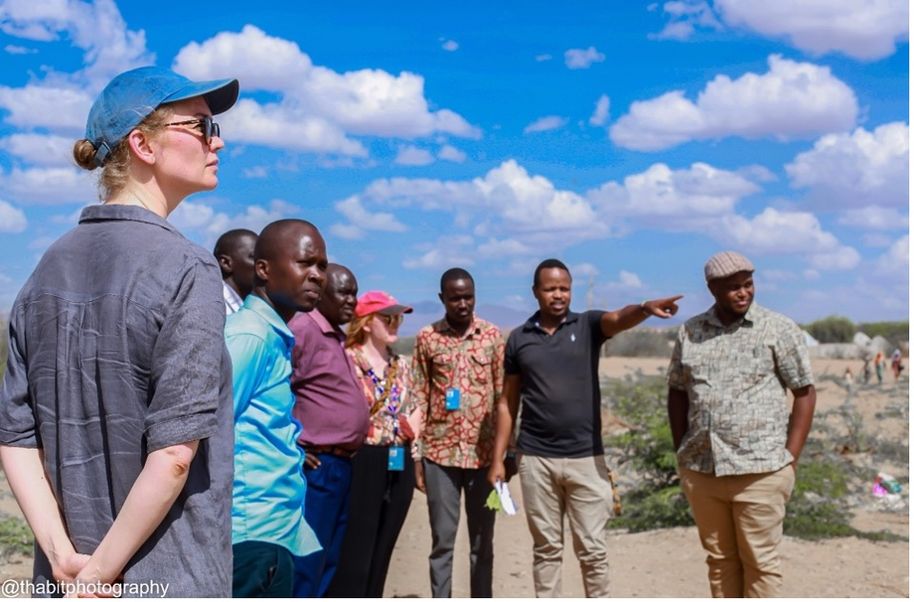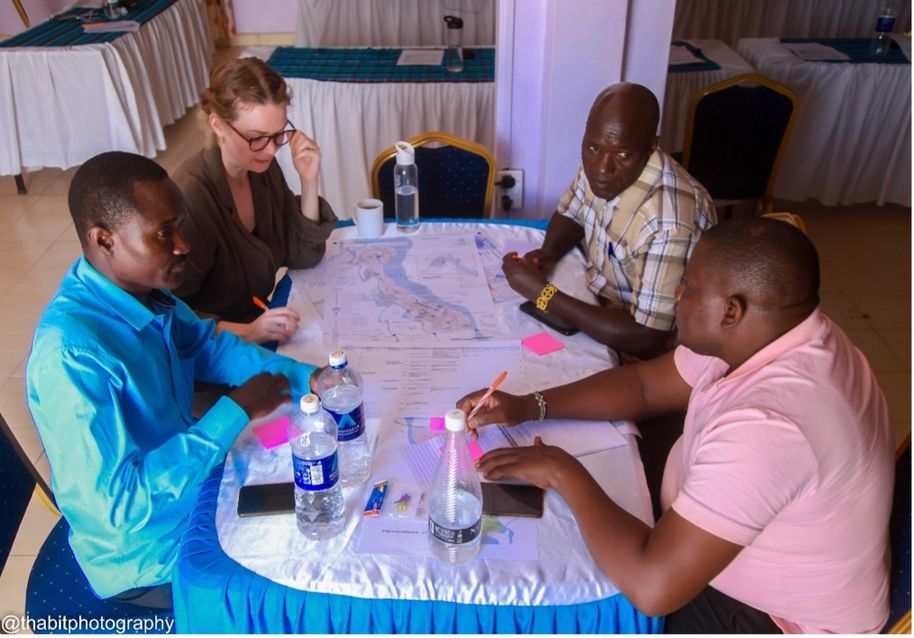Niina Rinne - WiTLAB collaborator

Niina RinneDuring my studies, I never thought that the UN could be a career option for architects as our training back then was focused only on the traditional role of an architect in Finland. However I discovered there is a huge need for professional urban development specialists in the international humanitarian development field.
In 2015, Niina graduated with a Master of Science in architecture. Following her graduation, she embarked on her international career with a 6-month internship at the UN-Habitat HQ in Nairobi, within the Urban Planning and Design Lab. This led to her being hired as an architect and urban planner within the same organisation.
In 2019, Niina dedicated a year of her career to a significant role with UNHCR in Bangladesh, contributing her expertise to one of the largest refugee camps. After gaining experience in Finland for a few years, Niina has now returned to the UN-Habitat HQ in Nairobi. In her current position as a Programme Management Officer, she is managing multiple projects across different regions, mainly related to urban planning in crisis contexts and humanitarian development nexus work.
- How did you get interested in planning for humanitarian development practice?
I’m trained as an architect and started my professional career in the private sector, designing housing development projects. I felt I was not in the right place and wanted to try something else and work more on sustainability and global challenges. I got a job opportunity at UN-Habitat HQ in Kenya, which led to a transition into more urban-scale work as well as a global perspective. I worked on urban development projects in post-crise contexts, such as developing a strategic spatial plan for Canaan, in Haiti, to support the rebuilding after the earthquake. During my studies, I never thought that the UN could be a career option for architects as our training back then was focused only on the traditional role of an architect in Finland. However I discovered there is a huge need for professional urban development specialists in the international humanitarian development field.

- What has been particularly important or useful during your studies, in regards to employment?
In general, problem-solving, critical and creative thinking, as well as action-oriented approaches have been transferable skills to any employment. I also trust having a solid technical urban design background, the capability to use multiple software and working with multidisciplinary teams have been important in my early career. I wish the global frameworks and policies would have been more included during my studies.
- Currently, you work at the UN-Habitat HQ in Nairobi. How did you end up in your current position?
Initially, I started as an intern at UN-Habitat’s Urban Planning and Design Lab in Kenya right after my graduation from Aalto University. I was lucky to get offered a job after the internship. I worked as an urban planner, and my first tasks focused on designing spatial strategies across Latin America, Africa and Asia. Later, I was also part of programme development and management. In 2019, I got an offer to work with UNHCR, the UN Refugee Agency in Bangladesh and I moved to Cox’s Bazar, where one of the world’s largest refugee camps is located. My work included developing a spatial long-term strategy to structure the camp in an incremental manner, and to coordinate infrastructure interventions across the camps. Now I’m back at UN-Habitat HQ and I’m working on urban and spatial planning projects in the Humanitarian Development contexts.
- What kind of assignments and projects do you do in your job?
As a Programme Management Officer, I am responsible for managing a portfolio of projects mainly across Africa and the Middle East. I’m working with local governments to improve the built environment and urban planning processes, which includes developing sustainable development strategies at multiple scales and identifying opportunities to integrate displaced populations in better ways. In my team we aim to mitigate tensions between host and refugee communities through community infrastructure, promoting the inclusion of vulnerable populations and disadvantaged groups through participatory and integrative planning and decision-making processes.
I work with several stakeholders; national and local governments, humanitarian and development partners, academia and the private sector as well as the local communities, including migrants, IDPs, asylum seekers and refugees. We collaborate with partners globally to strengthen humanitarian-development programming, answering to the paradigm shift from the traditional humanitarian response towards sustainable and long-term impacts. The urban development processes are highly participatory, and I see myself rather a neutral facilitator consolidating multiple voices in coherent visions and plans. My work includes grassroots activities working with communities in the field, but also participating in high-level international conferences and political discussions. However, the daily tasks include a lot of programme management-related stuff, such as budgeting, monitoring, logistics, and supervising.

- What kind of advice would you give to students who are interested in working in the field of humanitarian urban planning and design?
I would recommend having robust technical urban planning skills and being adequately qualified as the humanitarian contexts are complex and challenging. I believe there is potential for great positive impact, but actually achieving it can be very difficult and there is a risk that you could do harm as well. I would also say to be open-minded, curious, adaptable, and culturally sensitive. Be mindful and understand the power dynamics as you are often more privileged than the community you work with. Understand the context you will be working in, including culture and politics. You may be working in insecure environments, with a risk of instability and natural disaster. Be ready for rapid changes. If you like routines, structure and predictability, you may find this type of job frustrating. However, the job can be impactful, rewarding, and very multicultural.
Thank you Niina, for sharing your inspiring story!
UN-Habitat
The United Nations Human Settlements Programme (UN-Habitat) is mandated by the UN General Assembly to promote socially and environmentally sustainable towns and cities. UN-Habitat is the focal point for all urbanization and human settlement matters within the UN system.







